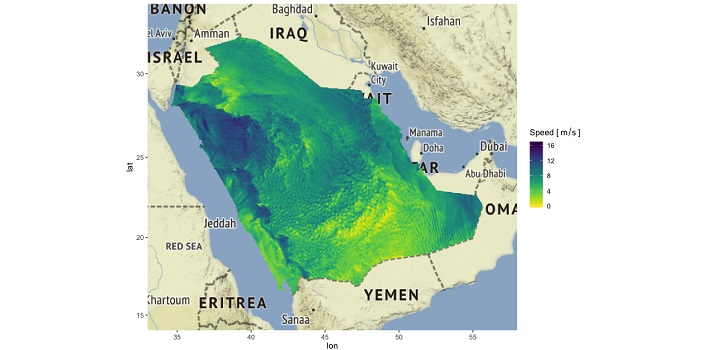Optimizing the integration of wind energy into a country’s power network requires reliable forecasts of how wind speed and direction are likely to vary in time and space over the pending few hours. KAUST researchers have now developed a statistical model that provides the best forecasts yet for wind conditions across Saudi Arabia.
“Saudi Arabia is aiming to diversify its energy mix and has set targets to significantly increase the amount of renewable energy in the grid, starting with wind and solar,” says former KAUST postdoc Amanda Lenzi.
To reach the goal of 9 gigawatts of installed wind energy by 2030 requires reliable models and advanced forecasting methodologies for wind conditions across the kingdom. This will help underpin investment certainty and is also needed for the efficient integration of wind energy into existing power grids.
Using hourly observations from 28 wind stations across the country, Lenzi and group leader Marc Genton set out to develop a reliable forecasting model using advanced statistical approaches for dealing with environmental data.

“Our main innovation with this approach is the joint modeling of both wind speed and direction, which are normally treated individually,” says Lenzi. “This approach shows improved prediction performance at time scales from a few minutes to hours ahead and from a single site to a whole continental area based only on a few wind monitoring stations.”
Read the full article.

